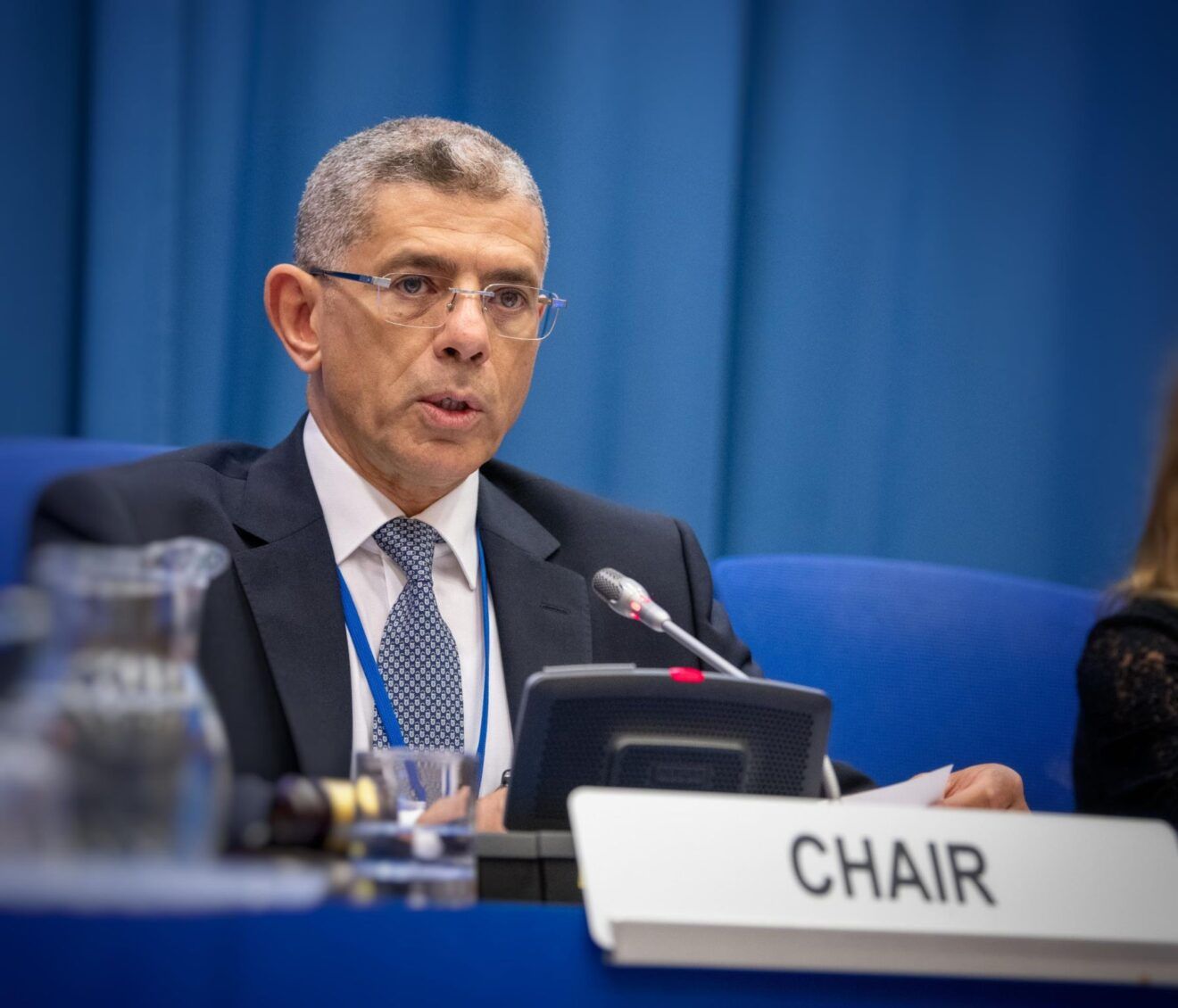Professor Sherif Sedky, EgSA CEO, Appointed Chair of COPUOS

At the ongoing 67th session of the Committee on the Peaceful Uses of Outer Space (COPUOS), during its 818th meeting, Professor Sherif Sedky, the CEO of the Egypt Space Agency (EgSA), was appointed as the new Chair of COPUOS. In this capacity, Sedky will lead the Committee in reviewing international cooperation on the peaceful uses of outer space, studying space-related activities that the United Nations could undertake, encouraging space research programmes, and addressing legal issues arising from the exploration of outer space.
About the Professor Sherif SedkyAcademic BackgroundProfessor Sherif Sedky began his academic career at Cairo University in 1999 as a teacher before becoming a visiting researcher at the University of California. He joined the American University in Cairo in 2002, becoming an assistant professor in 2004 and a university professor in 2008. He also served as a visiting professor at the Catholic University of Louvain from 2001 to 2008 and at Stanford University from 2009 to 2011.
In 2010, Sedky was appointed Director of the Yousef Jameel Center for Science and Technology, then the Associate Dean for Graduate Studies and Scientific Research Affairs at the American University in Cairo in 2011. He served as the first president of Zewail University of Science and Technology from 2013 to 2015 before returning to the American University in Cairo as academic president. He later resumed his role at Zewail City as academic president in 2017.
Contributions and AchievementsProfessor Sedky established the Centre for Design and Fabrication of Microelectromechanical Systems at the American University in Cairo in 2003. He received the Excellence Award in Research and Creative Works in 2007 and the State Encouragement Award in Science and Technology in 2002. Sedky holds 19 patents and has authored over one hundred international publications and a book chapter. His work in the field of MEMS design, fabrication, and integration has been widely recognized, with an H-index of 26 and over 1670 citations.
Professor Sedky served with over 31 years of regional and international experience in international institutions in the Middle East, Europe and the United States as well as on several high-level national committees for the establishment of educational and research Institutes in Egypt. He also served on the scientific committees of several international conferences, the board of the Science and Technology Development Fund (Egypt), the board of the National Center of Electronics Research, the board of King Salman International University and the board of the National Authority for Remote Sensing.
Furthermore, Professor Sedky is a member of the Institute of Electrical and Electronic Engineers (IEEE). He is the author of the book “Post-processing Techniques for Integrated MEMS” and has established a MEMS fabrication facility at the Science and Technology Research Center at the American University in Cairo. He received the Abdul Hameed Shoman Prize in 2014 and the Excellence in Research and Creative Endeavors Award in 2007.
In 2022, Egypt’s President, El-Sisi appointed Sherif Sedky as the executive head of the Egyptian Space Agency, and he was reappointed for another term starting August 19, 2023. Under his leadership, the agency advanced its space capabilities and launched several Earth observation satellites, including Horus-1, EgyptSat-2, Horus-2, and Nexsat-1.
Professor Sedky’s tenure saw the establishment of Egypt Space City, which now hosts the headquarters of the newly operational African Space Agency as well as the country’s state-of-the-art Assembly, Integration, and Testing facility. He played a pivotal role in developing Egypt’s local space expertise and securing numerous partnerships and collaborations to advance Egypt’s space ecosystem.

